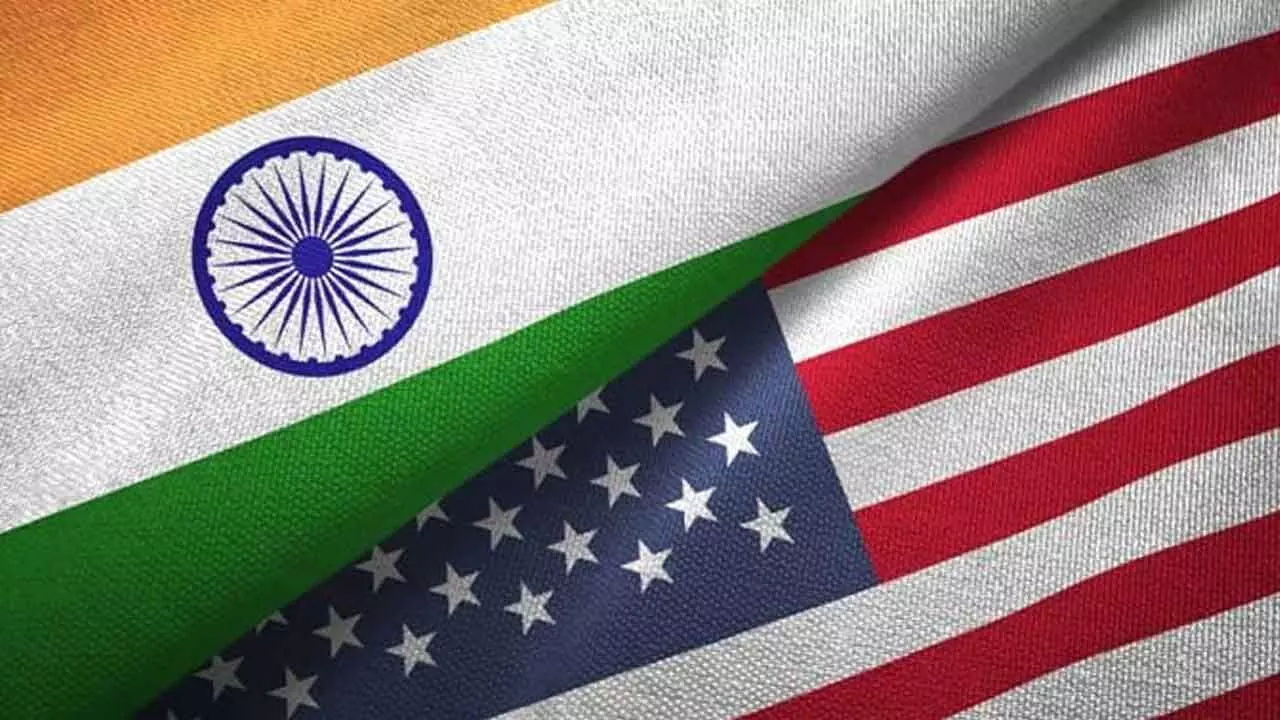Indo-US Relations Are Strong And Go Way Beyond Tariffs
Indo-US Relations Are Strong And Go Way Beyond Tariffs

US President Donald Trump has made it clear that he has no intention of halting or postponing his decision to impose reciprocal tariffs on India from April 2. Despite his insistence on enforcing these trade measures, Trump emphasised that he maintains a “very good relationship” with India. His primary concern, as he has often reiterated, is India’s high tariffs on American goods, which, he perceives, are a significant trade imbalance that needs rectification. In a recent interview with Breitbart News, he also spoke about the significance of the India-Middle East-Europe Economic Corridor (IMEC). He described the initiative as a “group of wonderful nations” working together to counter countries that exploit trade agreements in an unfair manner. The IMEC, which involves key global economic players, aims to enhance connectivity and facilitate smoother trade routes between Asia, the Middle East and Europe. This project is expected to serve as a strategic response to China's Belt and Road Initiative (BRI), reinforcing economic ties among allied nations and strengthening supply chain resilience.
Despite imposition of tariffs, both nations remain committed to expanding economic cooperation. During Prime Minister Narendra Modi’s visit to the US last month, both leaders announced plans to initiate negotiations on a Bilateral Trade Agreement (BTA). This agreement is expected to provide a mutually beneficial framework covering several sectors, including agriculture, technology, pharmaceuticals, and services. If successful, the BTA will help in reducing trade barriers and fostering deeper economic collaboration between the two nations. While Trump’s comments on tariffs might raise concerns in some quarters, it is essential for India not to be overly alarmed. The Indo-US relationship extends far beyond the realm of trade and tariffs. Several crucial elements underscore the strength of this bilateral partnership like investment and economic collaboration. The US is one of the largest sources of foreign direct investment (FDI) in India, with major American corporations actively investing in India’s technology, healthcare, and manufacturing sectors. The Indo-US defence partnership has also grown significantly in recent years, with agreements such as the Basic Exchange and Cooperation Agreement (BECA), the Communications Compatibility and Security Agreement (COMCASA), and the Logistics Exchange Memorandum of Agreement (LEMOA).
India has also procured advanced US military hardware, including Apache and Chinook helicopters, as well as P-8 Poseidon aircraft. Besides, both are integral members of the Quadrilateral Security Dialogue (Quad), which also includes Japan and Australia. The Quad plays a pivotal role in maintaining a free and open Indo-Pacific region and countering China’s increasing assertiveness. And last but not the least, New Delhi and Washington share a commitment to democracy, human rights, and the rule of law. This common foundation strengthens diplomatic ties and ensures continued cooperation on global issues, including counterterrorism, climate change, and cyber security. Although Trump’s decision to impose tariffs may seem like a setback, it is unlikely to derail the broader Indo-US relationship. The foundation of this partnership is built on strategic, economic and geopolitical interests that far surpass trade disputes. With ongoing discussions on BTA and collaboration on initiatives like IMEC and Quad, Indo-US relations are poised to grow stronger in the coming years. The two nations must navigate trade tensions pragmatically while continuing to leverage their deep-rooted partnership for mutual growth and global stability.

